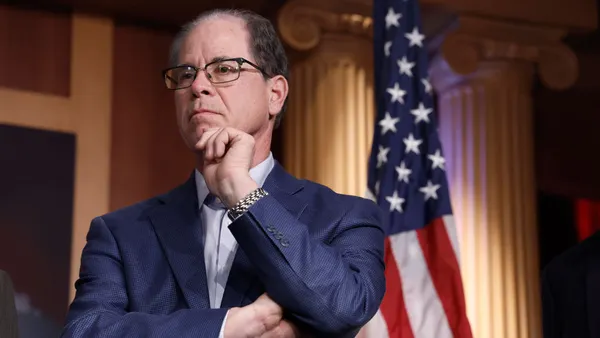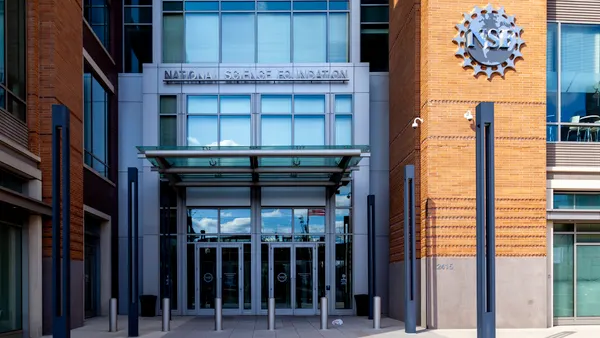The Obama administration is holding public forums on President Barack Obama's plan to change higher education, which relies in part on a rankings system to help determine how much federal money colleges and their students receive.
The first forum was held last week in California at Cal State Dominguez Hills, with Under Secretary of Education Martha Kanter and Deputy Under Secretary of Education Jamienne S. Studley listened to feedback, and attendees weren't shy about expressing their issues with the plan. The rating system in particular was a target of much of the criticism, but it wasn't the only aspect of the plan to come under fire.
Here are seven of the arguments presented at the forum:
1. IT COULD HURT DISADVANTAGED AND UNDER-REPRESENTED STUDENTS
David Levitus, California deputy director of Young Invincibles, observed that college is unlike many other products, where it's easy for consumers to choose another one if they don't like the first one. He sees providing more information on college choices as crucial, but he also sees two potential problems with creating a ranked list: "First is being careful not to disincentivize the practice of serving under-represented and disadvantaged students. ... The second concern we have is that the department faces a dearth of data in creating its rating system."
2. IT DOESN'T TAKE COMMUNITY COLLEGES INTO ACCOUNT
Thomas Fallo, president of El Camino College, told the panel that hoping students "vote with their feet" when it comes to attending more highly rated schools is wishful thinking in some cases. That's because students usually select community colleges not based on any ratings, but on convenience and location. He also said the proposed setup of the ratings system does not properly reflect the diversity of community college students across the country.
3. THE COLLEGE EXPERIENCE CAN'T BE BOILED DOWN TO NUMBERS
Donald Marshall, a retired university professor, said that his children went to two different universities and found each a good fit, but had the students and schools been reversed, it might have been a terrible fit. His point: College is a very individual experience and policy should not be too tempted in the direction of a rankings system. "It would be foolish to believe that one could rate all colleges and universities on a single set of metrics selected simply because they can be quantified," he said. "It is unwise to develop a rating system which, if taken seriously and used, would lead to bad decisions."
4. SCHOOLS WITH OLDER STUDENTS COULD SEE THEMSELVES PENALIZED
Cheryl McKnight, a faculty member at Cal State Dominguez Hills, said that students at her school are often raising families or taking care of aging parents. As a result, they take longer to graduate. "When we're put up against one common rating system, it increases the educational disparity," she said.
5. SMALLER SCHOOLS COULD BE HURT IN THE RANKINGS
Jeanne Ortiz, dean of students at Whittier College, said a small liberal arts school such as hers, with an emphasis on students working closely with professors, could see itself damaged in the rankings because of the high overhead such individualized attention entails. "It is imperative that the president's scorecard takes into account that 'value' and 'affordability' are not synonymous," she told the panel.
6. REWARDING THOSE AT THE TOP CAN MEAN PUNISHING THOSE BELOW
Mario Martinez, associate professor of mathematics at Santa Monica College, worries that creating a rating system will channel attention and money toward the top schools on the list, even if schools below them are doing good work. "Of course it feels good to say, 'Hey, they've got to get their act together or else we're going to punish them financially,'" Martinez said. "But the reality of it is much worse."
7. RELIANCE ON MOOCS SERVES COMPANIES AND NOT STUDENTS
Cal State Dominguez Hills history professor Kate Fawver told the panel that the administration’s approach is "troubling." The plan's concepts would promote "silver bullets" such as flipped classrooms, MOOCs and accelerated degrees, she said. Fawver told the panel that these solutions are "cures worse than the disease." She said high-tech solutions are being pushed by companies with making money, not the interests of students, at heart.
Three more forums are scheduled:
- Nov. 13: George Mason University (Fairfax, Va.)
- Nov. 15: University of Northern Iowa (Cedar Falls)
- Nov. 21: Louisiana State University at Baton Rouge
The Education Department is also accepting comments at [email protected]. For more arguments for and against the proposal, see our feature on 4 pros and 4 cons of the proposal.
Would you like to see more education news like this in your inbox on a daily basis? Subscribe to our Education Dive email newsletter! You may also want to read Education Dive's look at 6 schools that mastered their campus emergency responses.











